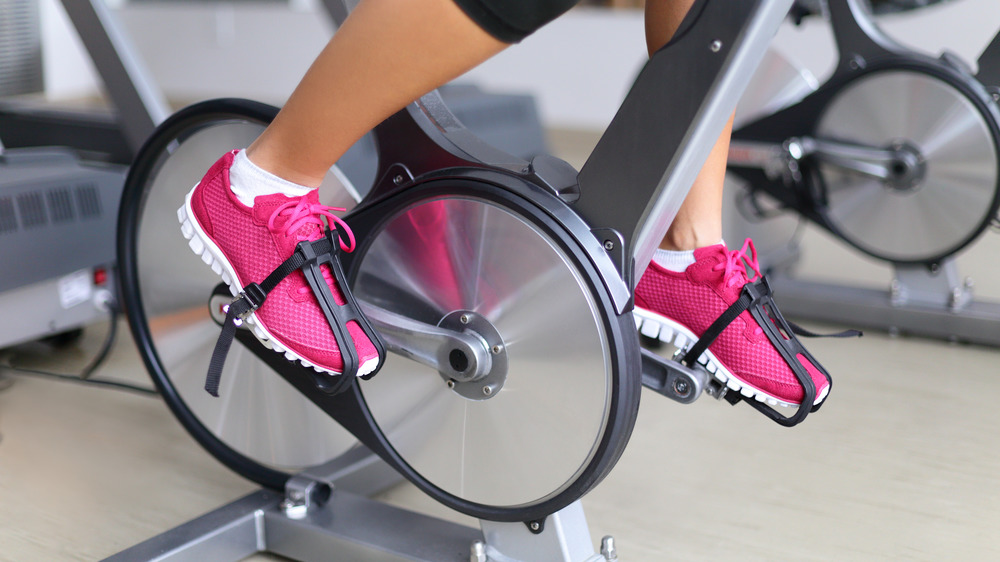How Short Can Your Intervals Really Be?
High intensity interval training, better known as HIIT, is established as one of the fastest ways to torch calories and burn fat without taking up hours of your day. But how much hard work do you really need to do to get a benefit? A new study showed that just four seconds of all-out effort can be enough to stimulate health-enhancing benefits, meaning that your sprint up the stairs may actually be keeping you healthy.
The study focused on middle-aged and older adults, and the two researchers — exercise physiologist Ed Coyle and his graduate assistant Jakob Allen — began with the simple goal of figuring out the minimum effective dose of high intensity needed to make a difference (via the New York Times).
High-intensity exercise has been linked to improved caloric burn (that lasts for hours after your workout), improved aerobic capacity, and even better heart health, according to Men's Journal. The new study found that these short four-second intervals, done in sets of 15 for a 15-minute workout, improved participant's fitness by a whopping ten percent after eight weeks. They also found that strength and overall muscle function improved significantly, despite the fact that they were only doing between three and six minutes of a hard workout each week.
How do you add the intervals into your day?
Coyle had previously found that the four-second intervals would work in a young adult population. In a study he published Medicine & Science in Sports & Exercise in early 2020, he noted that in the healthy, young adult study group, four second all-out interval sprints would increase fat burn after ingestion of a high-fat meal if done hourly. (You may want to add some sprints to your after-dinner walk!)
Perhaps the most interesting part of the research done by Coyle is that the participants largely reported enjoying the exercise and were willing to continue with it. The downfall of many studies on certain exercise and healthy habit implementation is that, when the study ends, many participants won't continue with the exercise. But when it can be done in just a few minutes a day and lead to such impressive health improvements, it's much easier to commit. While the study used an in-lab stationary bike setup, you can mimic the approach at home, doing hard bursts of work, like running in place or sprinting up stairs, during your usual low-impact walk.


